Antidepressants are often the first-line treatment chosen by medical providers for treating depression and anxiety disorders. The top two kinds of antidepressants prescribed are selective serotonin reuptake inhibitors (SSRIs) and serotonin and norepinephrine reuptake inhibitors (SNRIs).1
The two medication classes work similarly with differences in the exact functions of the brain, side effects, and food and drug interactions. Individual effects vary between SSRIs and SNRIs, so it’s important to remember you may have to try multiple antidepressants to find one that works best for you.
Key Takeaways
SSRIs and SNRIs are two commonly prescribed types of antidepressants that help regulate brain chemicals tied to mood. Both are effective in treating anxiety and depression, but they work in slightly different ways.
SSRIs increase serotonin levels in the brain. They’re typically the first-line treatment for anxiety and depression due to their safety profile and lower risk of side effects.
SNRIs increase both serotonin and norepinephrine. They may be a better option for people who don’t respond to SSRIs or experience uncomfortable side effects.
The best choice depends on your health needs, side effect tolerance and how you’ve responded to treatment in the past. You may need to try more than one option to find what works best for you. A provider can help guide the process.
What are selective serotonin reuptake inhibitors (SSRIs)?
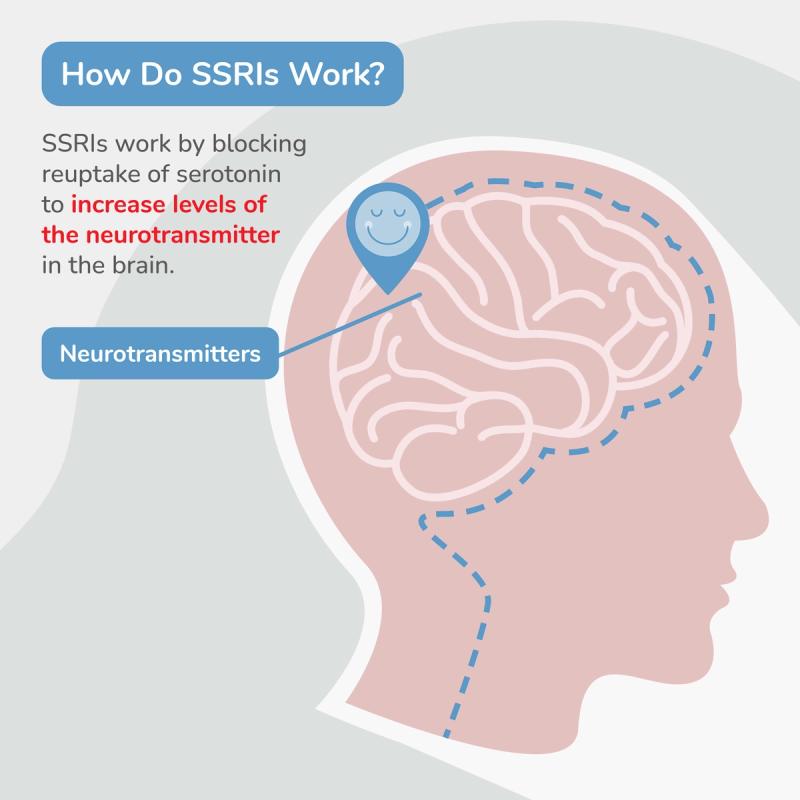
Selective serotonin reuptake inhibitors (SSRIs) belong to a class of medications called antidepressants. SSRIs work by blocking serotonin reuptake to increase neurotransmitter levels in the brain. These drugs are one of the most prescribed medications in the U.S. and are used to treat various conditions, including depression, anxiety and premature ejaculation.2
Commonly prescribed SSRIs include:
What are serotonin and norepinephrine reuptake inhibitors (SNRIs)?
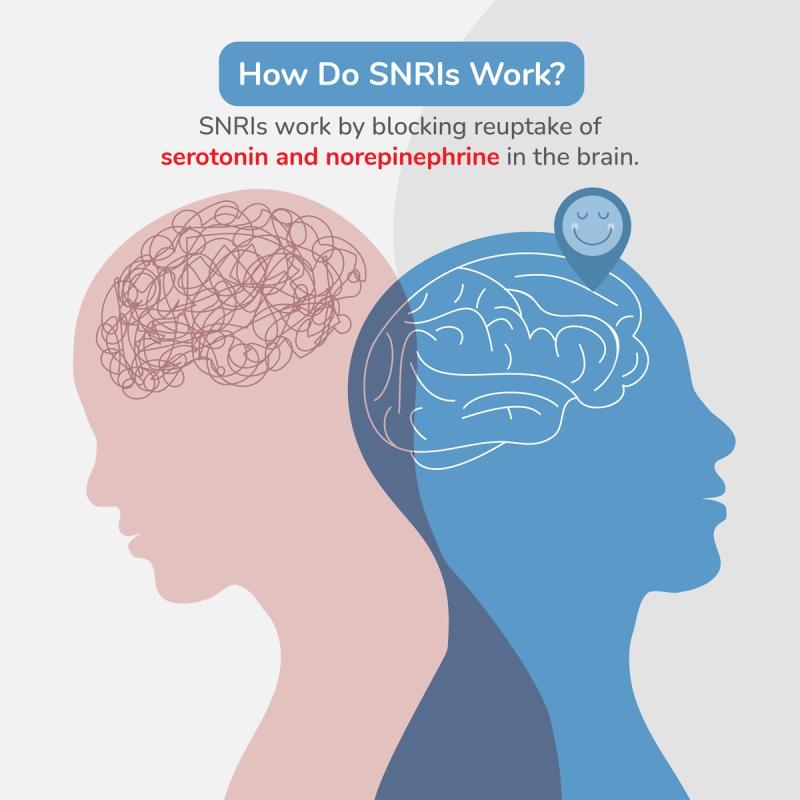
Serotonin and norepinephrine reuptake inhibitors (SNRIs) are antidepressant medications that block the reuptake of serotonin and norepinephrine in the brain.3 SNRIs are primarily prescribed to treat depression, anxiety and fibromyalgia.4
Commonly prescribed SNRIs include:
Levomilnacipran (Fetzima®)
Milnacipran (Savella®)
What is the difference between SSRIs and SNRIs?
SSRIs and SNRIs work similarly, but with a few key differences. SSRIs block the reuptake of serotonin only and have little to no effect on other neurotransmitters.5 SNRIs block the reuptake of serotonin and norepinephrine, which are neurotransmitters that play a role in mood regulation, sleep and memory.6
While SSRIs and SNRIs have similar mechanisms, individuals can be affected differently by each medication. You may have to try more than one SSRI or SNRI to find one that works best for you.7
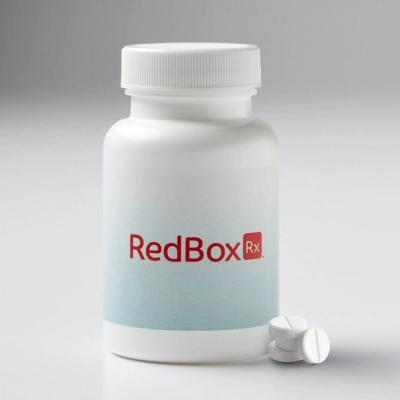
Convenient, affordable anxiety and depression treatment online.
Your mental health is important. Start your secure, private online doctor consultation and get treatment for $25/month.
Get StartedHow effective are SSRIs and SNRIs for depression?
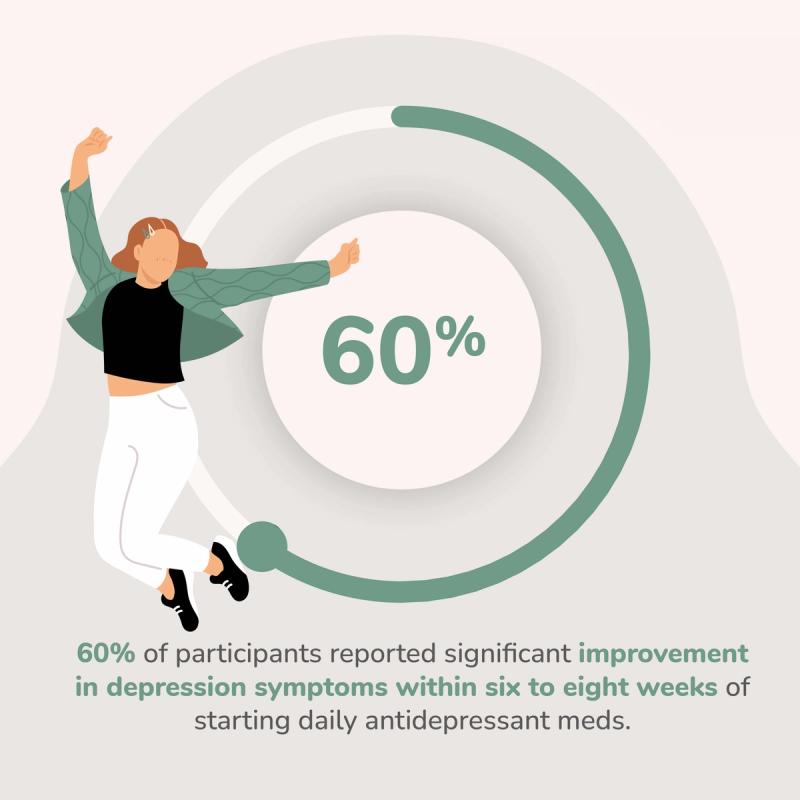
The effectiveness of medication treatment for depression can vary significantly between individuals. There is not enough clinical evidence to support that SSRIs or SNRIs are more effective at treating depression than the other.
However, there is evidence to support the effectiveness of antidepressants on depression versus placebo. For example, one study showed that up to 60% of participants reported significant improvement in depression symptoms within six to eight weeks of starting daily antidepressant meds.8
How effective are SSRIs and SNRIs for anxiety?
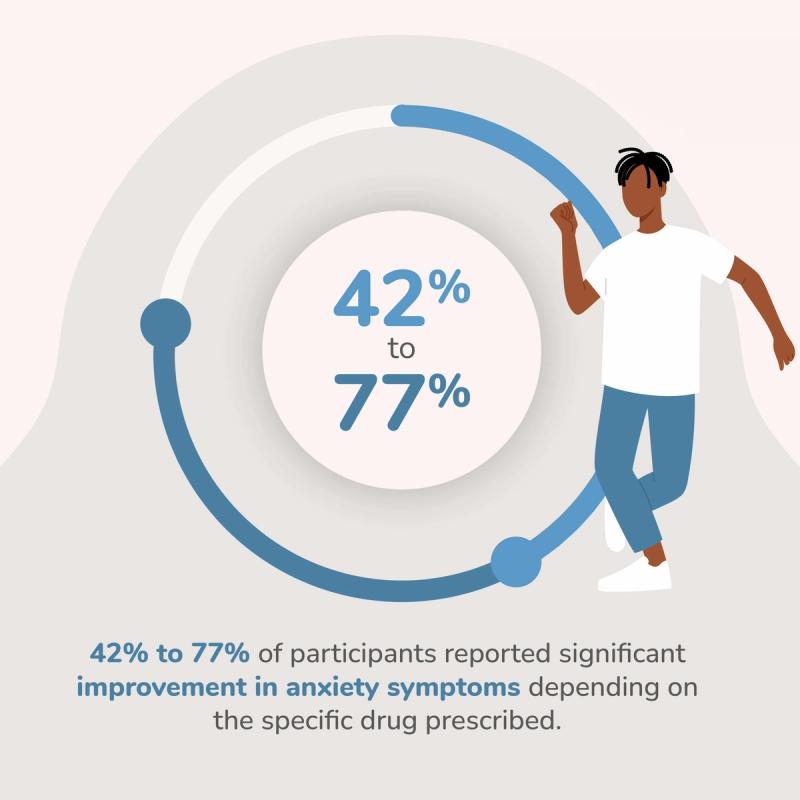
Similar to depression, SSRIs and SNRIs have been shown to be effective at treating anxiety. However, there isn’t a statistically significant difference between SSRIs and SNRIs.9
In one study of several antidepressants, anywhere from 42% to 77% of participants reported significant improvement in anxiety symptoms depending on the specific drug prescribed.10
How do side effects compare for SSRIs and SNRIs?
Many of the side effects of SSRIs and SNRIs are similar. Common side effects of both SSRIs11 and SNRIs12 include:
Sexual dysfunction.
Dizziness.
Nausea and vomiting.
Dry mouth.
Sleep disturbances, drowsiness and fatigue.
Side effects that are more common with SSRIs include:
Headache.
Weight changes.
Worsened anxiety.
Side effects that are more common with SNRIs include:
Constipation.
Excessive sweating.
How do drug and food interactions compare for SSRIs and SNRIs?
Generally, both SSRIs and SNRIs are well tolerated and have minimal interactions with food. It is suggested for any antidepressant to avoid drinking alcohol because it can increase drowsiness. Certain SSRIs, like fluvoxamine, can potentially increase the effects of caffeine, so coffee, chocolate, tea and soda should be avoided.13
Drug interactions with SSRIs include:
Nonsteroidal anti-inflammatory drugs (NSAIDs) – ibuprofen, diclofenac or naproxen.
Antiplatelets – low-dose aspirin and clopidogrel.
Theophylline.
Clozapine and pimozide.
Lithium.
Triptans – naratriptan, sumatriptan and zolmitriptan.
Other antidepressants – tricyclic antidepressants (TCAs), monoamine oxidase inhibitors (MAOIs) and serotonin-norepinephrine reuptake inhibitors (SNRIs).
Drug interactions with SNRIs include:14
NSAIDs – ibuprofen, aspirin or naproxen.
Blood thinners – aspirin, warfarin.
Other antidepressants – TCAs, MAOIs and SSRIs.
SSRIs vs. SNRIs Comparison Chart
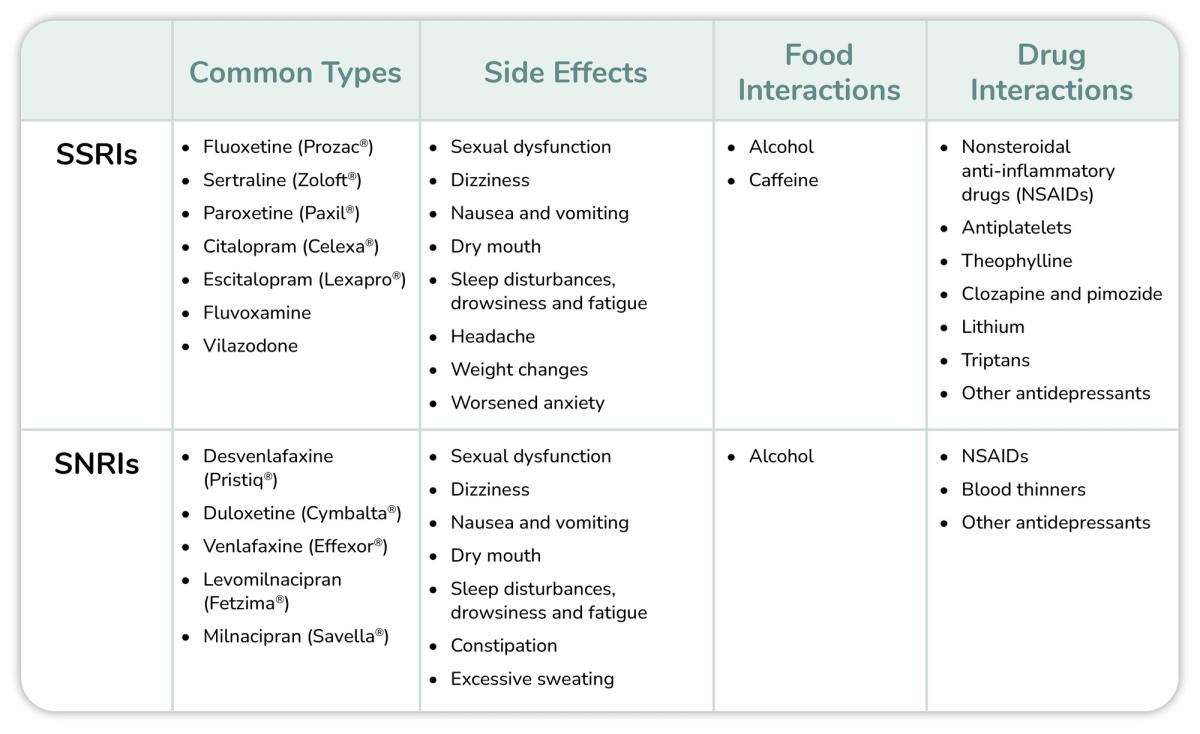
How RedBox Rx can help
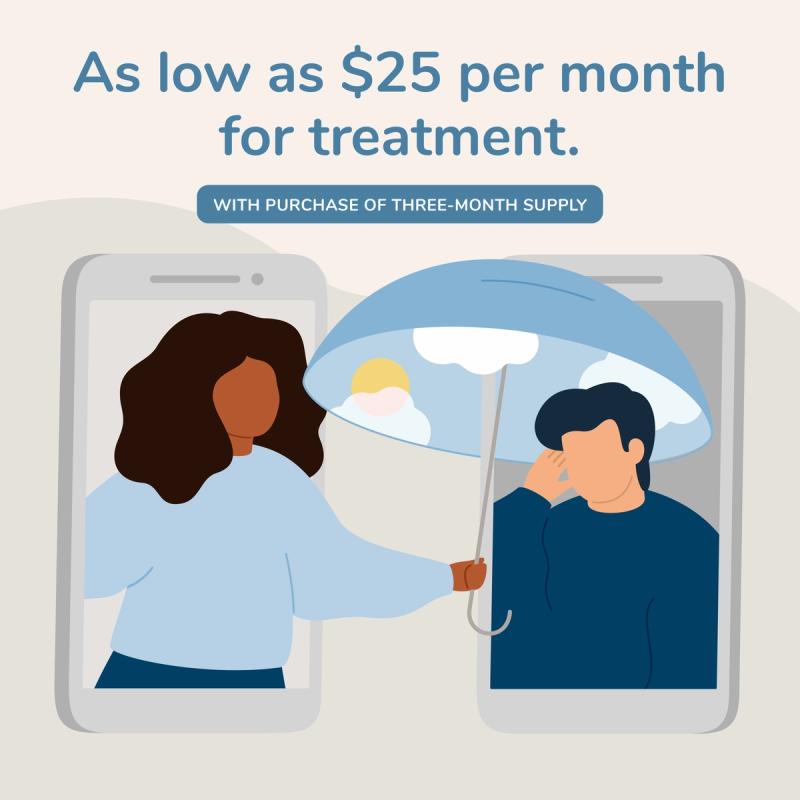
RedBox Rx makes receiving a prescription for SSRIs or SNRIs to treat anxiety and depression easy and affordable. We offer secure, private online consultations with licensed providers focused on your health.
Benefits of RedBox Rx include:
Transparent, affordable, flat rates. Medications for $25/month (with purchase of three-month supply).
$35 consultations with a U.S. licensed medical professional.
No insurance required. No membership fees. HSA and FSA eligible.
No office wait times or scheduling issues typical with physical medical practices.
FREE shipping directly to you. Monthly and quarterly subscriptions available.
Get started on your mental health treatment journey with our online assessment.
If you are experiencing suicidal or self-harm thoughts, please reach out immediately to a health care provider, call the National Suicide Prevention Lifeline at 1-800-273-8255, or call the Suicide and Crisis line at 988.


